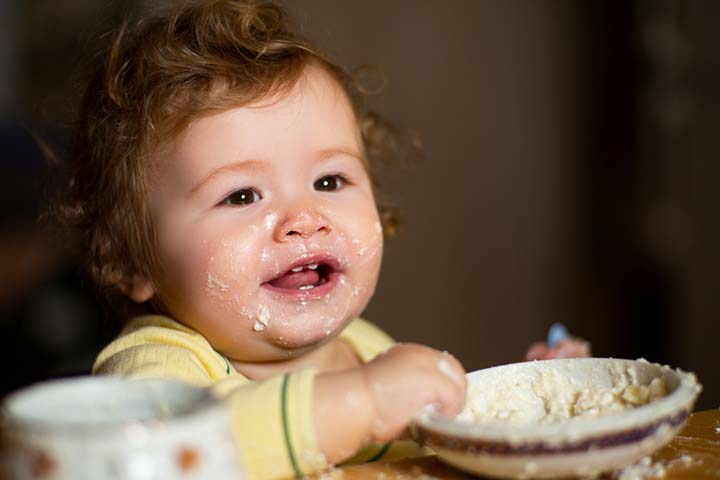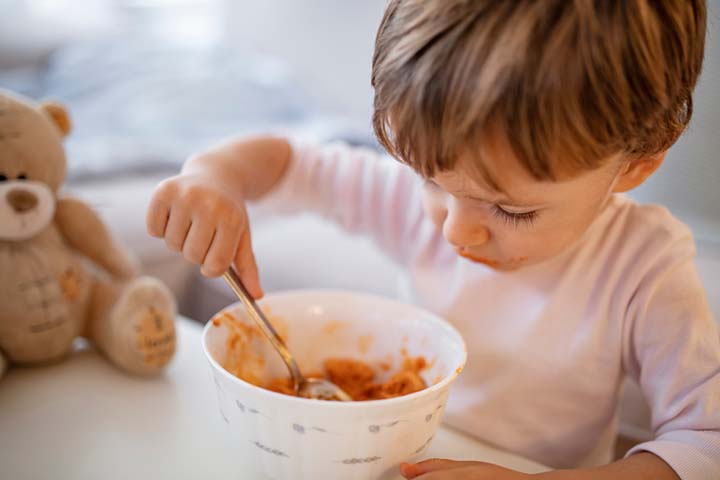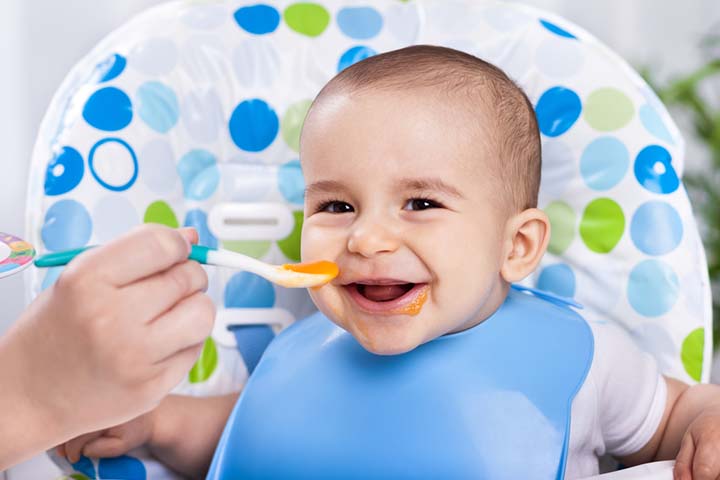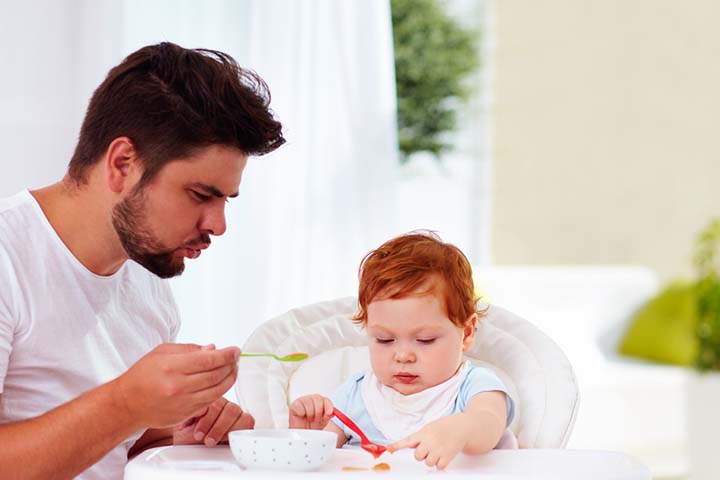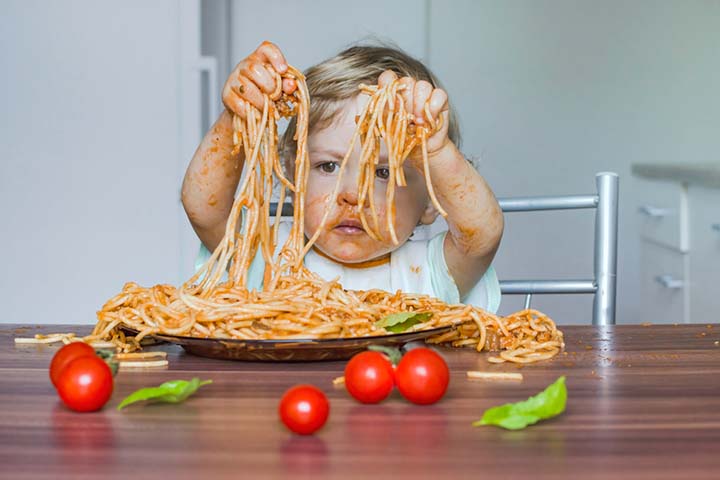
Image: Shutterstock
Toddlers need to learn to become self-independent and responsible. Becoming a helper to their parents or taking care of their younger siblings will help them gain confidence. But unfortunately, most toddlers are still dependent on their parents to feed them. So, do you think it’s good to continue this practice, or do your kids need to change this habit to get the best of themselves?
In this article, you’ll get your answers on whether to let your little ones eat on their own or whether you should still sit with them and make them eat. So lets’ find out.
Should They Feed Themselves?
The answer is yes. And you don’t need to worry about the mess your little ones create while doing this, as self-feeding is one of the most vital milestones and a healthy sign of development. So now let’s find out more benefits of self-feeding in toddlers.
When Can They Start Self-feeding?
Image: Shutterstock
Kids eventually begin to create new movements that cause them to become lively little people. Self-feeding is a crucial life skill that promotes a child’s social and personal growth. This ability will not only provide your child the best chance to become independent but also enable them to recognize the signs of fullness or hunger. You can begin preparing your kid for self-feeding between the ages of 8 and 12 months after they can use their forefinger and thumb.
Benefits Of Self-Feeding
Here are some significant benefits of self-feeding in toddlers.
1. Improves Their Senses
Image: Shutterstock
Allowing your little ones to take charge of mealtimes will help them realize what they are eating because they will also be seeing and touching it. In this manner, kids will recall what the meal will taste like the next time they see it.
2. Make Them More Independent
As a parent, you know how challenging it can be to make your little ones behave when they throw tantrums for no reason while eating their food. However, if you let them eat by themselves, they will not misbehave. Moreover, they feel more confident and independent while having their meal.
3. It Helps Them Control Their Hunger
Image: Shutterstock
Do not force your little ones to eat. They may like mealtime if they understand they aren’t spoon-fed. This ideal technique gives kids a sense of control over their food. All you need to do is place the favored foods on their plate and let them choose what they eat.
4. It Helps Them Grow Motor Skills
Your baby will use their arms, vision, and mouths in various ways when you let them self-feed that they might not have experienced while playing with toys or other objects. In addition, self-feeding will improve their motor skills, like hand-eye coordination.
How To Teach And Encourage Toddlers To Self-Feed
After knowing about the benefits and importance of self-feeding in toddlers, you might wonder how to make your kid follow the same habit. Don’t worry. Here are some tips for teaching your toddler to self-feed effectively.
1. Appreciate Their Efforts
Remember to encourage your little one when they successfully clear their plate of food. You must appreciate them, even if they make a mess. Because trying is more vital than succeeding.
2. Accompany Them When Self-feeding
Image: Shutterstock
Never let little kids eat by themselves. Ensure you keep an eye on them so you can help them immediately if they start to choke. You can lessen the risk by cutting the food pieces smaller, but it’s best to keep a close eye on them.
3. Give Them A Demo
Teach your kid the proper techniques for holding and swallowing food. Try to eat dinner as a team with your child. You can also talk about the dish your child is eating while holding it for them one at a time to demonstrate how to eat it.
4. Offer Them Snacks
Give your little one snacks that are simple to digest, for instance, tiny chunks of pasta, soft steamed carrots and sweet potatoes, and fresh fruits like bananas, apples, mango, and peaches.
5. Prepare For A Mess
Image: Shutterstock
When kids are permitted to handle, examine, and feed themselves new dishes, things get nasty and dirty. And it’s all right! So don’t worry about it, and be mentally prepared for a mess. If you’re concerned about food spilling, have your kid wear an apron, use a towel on the table, or take their clothes off down to their diaper! Additionally, keep some paper towels and baby wipes nearby. After dinner, you might even need to bathe your kid.
6. Show Some Patience
It takes time for your kids to learn how to feed themselves. So avoid rushing the procedure or mealtimes. Given that they know their appetite and fullness cues, your kid should decide the pace. For this reason, giving them ample time for regular meals is advisable. So be patient because the results will be sweeter.
Self-feeding is a skill that requires time to develop. So, don’t forget the hardships of this journey, and try to support your kid as much as possible. Hopefully, these tips will help you get to the goal quicker. Also, don’t forget to share your babies’ self-feeding experience with us in the comment section below. Happy parenting!

